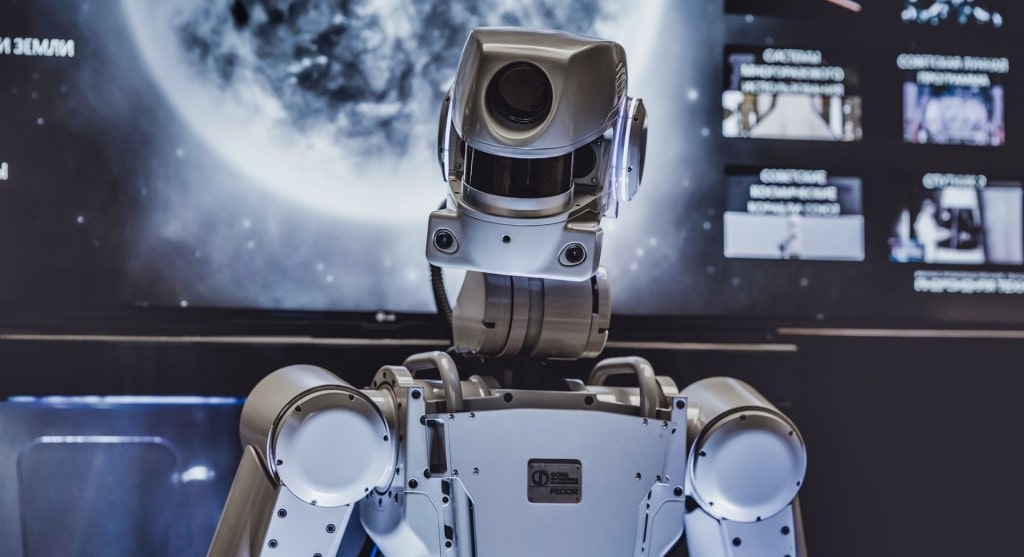What does a PhD in Robotics Involve?
A PhD in robotics focuses on training researchers in the field of automation and robotics engineering. Doctoral students are characterised by the application of the techniques of this field in solving new problems and technological challenges. Nowadays, the field of automation covers a wide spectrum, ranging from the automation of industrial processes to the development of robotic systems for domestic environments or the pattern recognition for quality control systems.
The speciality areas for a PhD research project in robotics include:
- Intelligent Robotics: This area focuses on the design and development of intelligent and autonomous robotic systems. The aim of this area is to develop systems that understand their physical environment and use intuitive behaviour to adapt to changes.
- Intelligent Interfaces: This line of research deals with projects related to the design and development of interfaces to enable efficient interaction between the human user and the artificial robot system. It aims to develop artificial intelligent interfaces that enable communication and dialogue with the robotic system through voice, emotion and vision – in other words, human-robot interaction.
- Rehabilitation Robotics and Control of Robotic Systems: This line of research includes the development of robotic devices to support therapists and patients in physical rehabilitation therapies. One goal is the design and optimisation of robotic mechanisms and exoskeletons for physical therapy. To achieve this goal, mechanism design, optimisation algorithms, linear and nonlinear control techniques, artificial intelligence and haptic systems are used.
The fundamental aim of a doctoral robotics program is to enable students to become highly specialised by conducting original research in scientific and technological areas of robotics to answer stated research questions that ultimately improve our quality of life.
Browse PhDs in Robotics
What are the typical application requirements for a PhD in Robotics?
A Robotics degree is mainly, but not exclusively, aimed at engineering graduates in the fields of robotics, electrical engineering, electronics, mechanics, industry, mechatronics, computer science, mathematics, physics and related fields.
The typical entry requirement is a relevant Masters qualification with an Upper Second-Class Honours, typically in one of the above-mentioned subjects. In addition, if the candidate is an international student, they will be expected to meet a number of English language requirements set by the university.
Although this is not always the case, some robotic PhD programs require the applicant to submit a research proposal outlining his or her intended research. The supervisor may use this to assess whether the student is suitable for the doctoral program, especially if the position comes with funding.
Personal Profile
The general entrance profile of graduate students in Robotic programs is that of a person interested in the formal development of technology based on design methodologies, interested in research with critical thinking, creativity and inventiveness to address new problems or innovate by offering solutions to real problems of automation and production, willingness to use computer systems, determination and perseverance.
Although not a prerequisite, it is helpful for a prospective PhD student to have knowledge in the following areas:
- Mathematics: numerical methods, linear algebra, numerical analysis, probability and statistics, and differential equations.
- Computing: programming, data structures, algorithms, computer vision, sensors (image, tactile, acoustic, pressure, etc.), speech recognition and synthesis.
- Physics: classical mechanics (kinematics and dynamics), optics.
- Engineering: mechanics (mechanisms and mechanical design), electronics (digital and analogue), control systems and signal processing.
In addition, many universities are also looking for prospective students who can demonstrate that they have the potential:
- Develop a thorough knowledge of the scientific and technological that underlies the field of robotics.
- Master the concepts, methods and techniques of their disciplinary field related to robotics.
- Can plan, carry out and evaluate original research projects, especially in their discipline.
- Train human resources for teaching and research.
- Can form multidisciplinary groups with national and international colleagues to carry out basic and applied research projects.
- Handling of specialised computer tools in the various fields of engineering.
- Communicate ideas as articles and presentations in professional forums.
- Have initiative and strong decision-making skills.
- Have ethical and moral commitment with its social environment for generating and passing on knowledge.
How much does a Robotics PhD cost?
The average university full-time tuition fee for a PhD in Robotics in the UK is approximately £4,407 per academic year for home students and £19,600 per academic year for international students. For part-time study it is approximately £2,203 and £8,800 per academic year for home and international students respectively.
Career and Professional Development Options

The influence of automation and robotics research in today’s society is becoming increasingly evident. Robotics is associated with the desire to synthesise some aspects of human function through mechanisms, sensors, actuators and computers.
The multidisciplinary nature of robotics enables it to include many fields of knowledge such as mathematics, physics, electronics, mechanics, computing, vision and artificial intelligence. Research and development in this area are crucial, and as a result, Robotic PhD graduates are in high demand.
Career options for robotics engineering degree holders include work in the following industries:
- Renewable Energy: developing systems to increase the efficiency of photovoltaic modules and collectors.
- Development of sensors: dedicated to the monitoring of remote variables, suitable for industrial environments such as the food industry.
- Home Automation: automation and control of smart homes.
- GPS: cargo monitoring and fleet tracking and management system.
- AGRO: statistics and data collection for the measurement of soil parameters.
- OEM: Original equipment for residential and industrial products.
- Mining and Military: developing technological equipment to increase field effectiveness.
